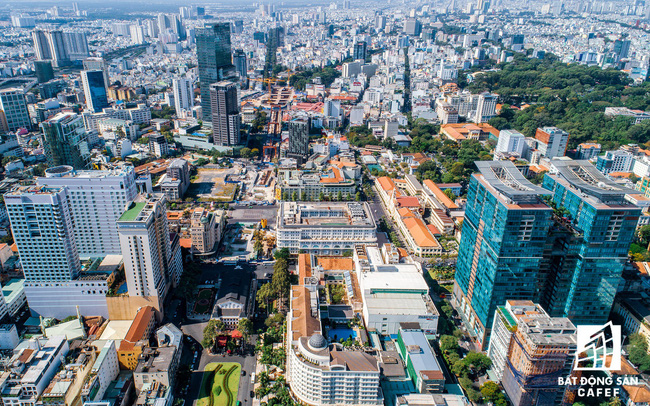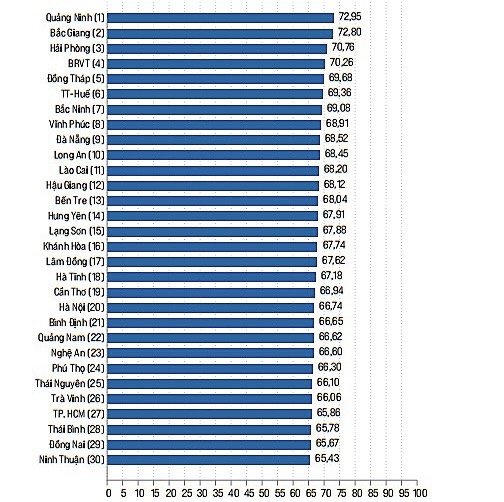In recent years, Vietnam has embarked on the journey of international integration and built an export-based economy. International trade agreements have given Vietnam the opportunity to cooperate with 60 countries around the globe and support Vietnam on the path to becoming a new production center of the world.
Within the next two decades, Vietnam will enter the age of golden population. The number of workers working in industry and services has increased. Millenial generation will become the main driving force of the economy in the next few years.
Entering the threshold of a new decade, JLL reveals five key trends that investors should pay attention to in 2020.
The future of retail
The retail sector is changing rapidly, success is also more dependent on the supply chain. Multichannel retailing is making logistics more complex than ever: goods must not only fill supermarket shelves, but must be available anytime, anywhere.
New experiences and entertainment services are a new trend in the traditional retail market. Retailers are focusing on refreshing the space, improving better customer service and applying technology, analyzing consumer psychology to attract customers to shop.
According to JLL experts, consumers increasingly prefer online shopping, purchasing decisions are often based on how fast and efficient retailers can deliver goods. Competitive pressure from e-commerce rivals is increasing the pressure on traditional retailers’ profits. Effective supply chain and logistics management will help balance costs and be an important separation for retailers from competitors.
Approval procedures affecting housing supply
According to the latest JLL report, about 30,000-35,000 apartments are expected to officially open for sale in Ho Chi Minh City and 40,000-45,000 apartments in Hanoi. It should be noted that this supply will be highly volatile as the government strictly controls the granting of land use rights and construction permits.
Demand will continue to increase in the future and will push prices even higher in all segments. However, demand in the high-end segment, especially demand from investors, may slow down in the long term as high prices and low rental performance make the investment channel less attractive. more than in previous years.
Technology helps to raise sustainable values
The ‘green’ movement gets a spectacular push when the words ‘fine dust’ and ‘virus’ become word of mouth everywhere. While the number of people buying masks is still long, real estate investors in offices and hotels have also planned to upgrade their buildings to protect people. Investing in air quality and safety and hygiene is the key to increasing the competitiveness and sustainability of the property.
Mr. Stephen Wyatt, General Director of JLL Vietnam, said: ‘Sustainability value should not only be a trend, it must be the future of all real estate. The next generation of buildings must be set to be greener, incorporating sustainable technologies to save on operating costs and groundbreaking designs to attract tenants and talent. ‘
Industry continues to lead the market
Industry remains the hottest sector on the market with growing demand as companies are still seeking to relocate from China amid political instability. Even before the trade war, we have seen significant interest from other countries over the past few years leading to increased land values and rents. Manufacturing has been the largest investment attraction sector in the last 10 years, and we anticipate that this segment will continue to dominate the industrial market. In the near future, JLL hopes to see the growth of medium and long-term investors in industrial sectors, supported by government support, free trade agreements and movement. from China.
Industrial logistics is forecast to be the future of the industry. The continuous increase in demand from both traditional retail and e-commerce has put great pressure on existing supply chains, facilities and warehouses. JLL predicts that the growth of online retail will contribute to investment activities for the current industry gaps.
Tenants prefer flexible space
According to the latest JLL report, the office market is still hot when the latest quarterly rents reached the highest level of the decade. A & R grade increases are driven by strong demand and higher rents in new office projects. Tenants have difficulty finding large office space, as currently, only one Grade A building and ten Grade B buildings can provide more than 1,000 square meters of space.
Demand for large and flexible office space will accelerate in the next few years as coworking executives grow in number of offices and companies want to upgrade offices to retain talent and expand their businesses. . Larger and more flexible spaces offer greater opportunities for cooperation and greater energy efficiency and space.
In general, macroeconomic factors such as urbanization, the popularity of smartphones and the Internet as well as the aging population will increase the demand for replacement assets. In addition to the aforementioned trends, alternative investments in nursing homes, student halls, shared kitchens and data centers will become popular in the market over the next few years.


